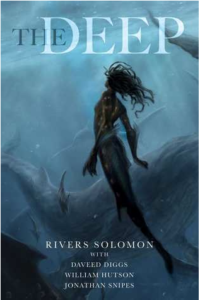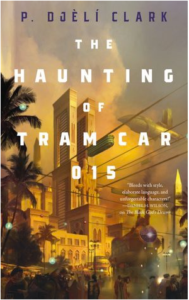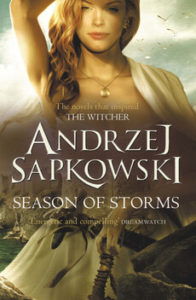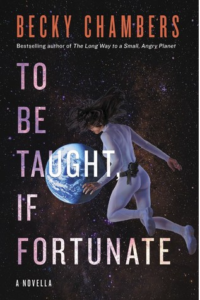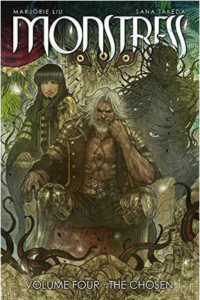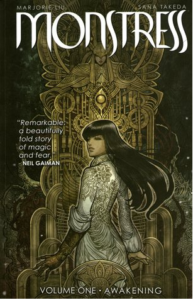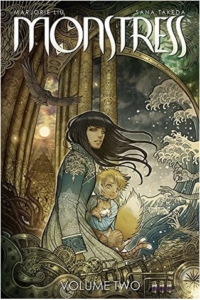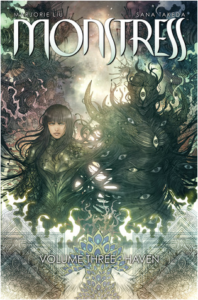Oh, that was a hot mess.
One reason that the rest of the books in the Wayward Children series have worked for me, despite my misgivings regarding certain of Seanan McGuire’s narrative choices (e.g. the blanket disdain for parents in Every Heart A Doorway, the idolization of The Baker in Beneath The Sugar Sky, the occasional need to soapbox instead of work issues cleverly into the narrative in both. Down Among The Sticks And Bones is perfect tho,) is that the portal worlds the children escape to are fantasy worlds that don’t operate on the logic that ours does. Granted there’s a Virtue-Logic dichotomy to track the scale of exactly how each realm differs, but each has their own internal consistency that rules all doings while on it. Well, had. Because the Goblin Market world introduced in this novella makes absolutely no damn sense at all, which was highly ironic given that it’s supposed to be one of the Logical worlds.
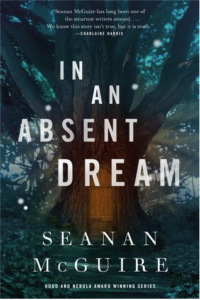 But even before we get to the Goblin Market, I felt both really seen and really irritated by the description of Katharine Lundy, our heroine. Hey, I was that bookish, rule-following child who was perfectly happy alone, but I also had friends who were bookish, rule-following children, and we weren’t boring prigs! We liked each other’s company! I’m still friends with them today! I also had lots of friends who weren’t bookish rule-followers… but this isn’t about me, this is about Ms McGuire writing as if Lundy’s fate was the inevitable one for kids like her. It’s not, and saying so is stupid.
But even before we get to the Goblin Market, I felt both really seen and really irritated by the description of Katharine Lundy, our heroine. Hey, I was that bookish, rule-following child who was perfectly happy alone, but I also had friends who were bookish, rule-following children, and we weren’t boring prigs! We liked each other’s company! I’m still friends with them today! I also had lots of friends who weren’t bookish rule-followers… but this isn’t about me, this is about Ms McGuire writing as if Lundy’s fate was the inevitable one for kids like her. It’s not, and saying so is stupid.
Anyway, poor lonely Lundy finds a portal that leads her to the Goblin Market, a realm with seemingly bizarre rules that were set up in order to maintain Fair Value, the defining characteristic of this world. On the one hand, I thought it was pretty neat that there exists a place with all of five rules to govern your life that winds up being positively utopian. Cheating individuals or not contributing to society means that the realm itself will punish you. Lundy’s dad thinks that this discourages maturity and free will but Lundy’s dad is stupid. Do real world punishments for criminal acts discourage free will, Dad? Fucking hardly.
But the Market isn’t shown to be a good place — despite it being a radically cool concept — but a scary one. Which, yes, but also, what is going on here? Does Ms McGuire want us to like this place? I had zero idea why Lundy, whose grasp on the Fair Value thing often seemed shaky at best, would want to live here. The entire thing with the Wasp Queen and Mockery was ridiculous and unnecessarily off-camera. The bargain Lundy made to restore Moon to humanity made no sense either: if the relationship development the Archivist predicted was “inevitable”, why bother putting it in as a price?! And the way Lundy left Goblin Market at the end was the stupidest thing I’ve ever read in these books. The idea for the Goblin Market was amazing (and also awful in the sense that transactionalist societies always feel one step away from donning jackboots and rounding up the disabled,) but the execution so incredibly nonsensical, for a book about a fantasy realm ruled by logic, that I didn’t know whether this entire thing was supposed to be a weird joke of some kind.
Obviously, this is my least favorite of the series, and at the moment the least favorite of the novellas in contention for the 2020 Hugo Awards. So bad.

